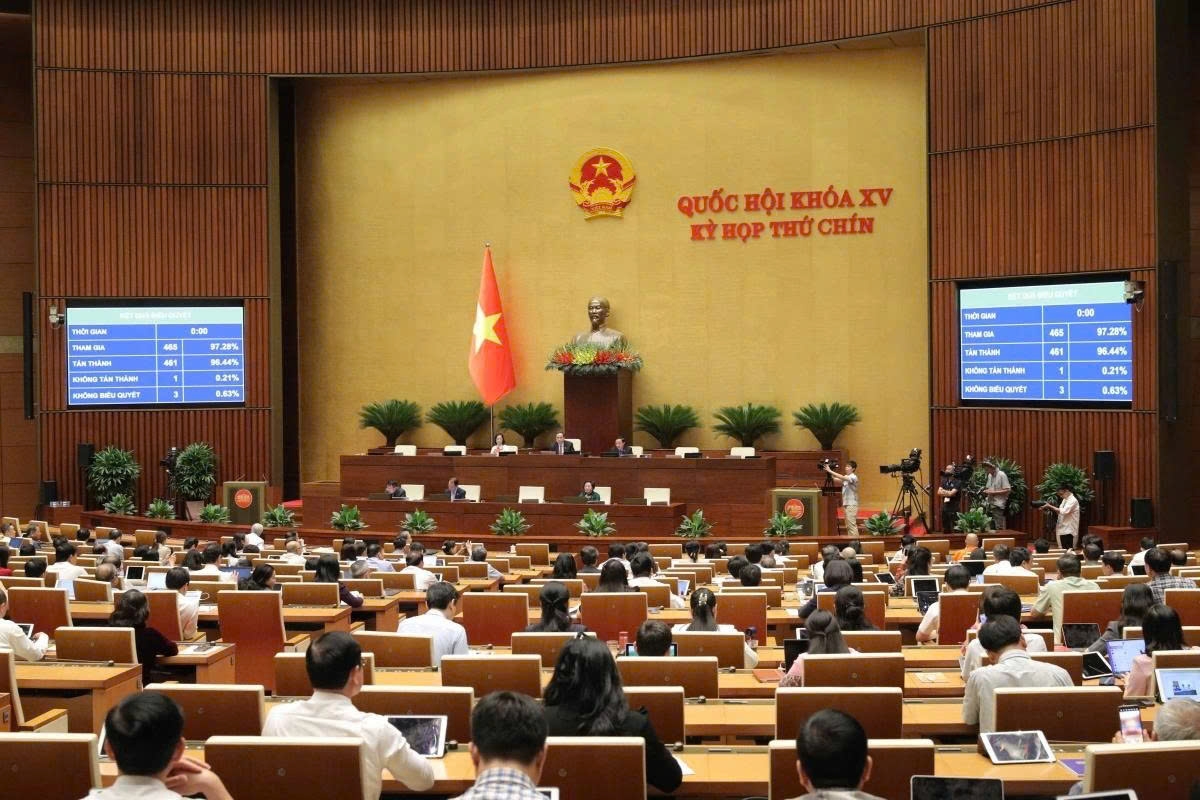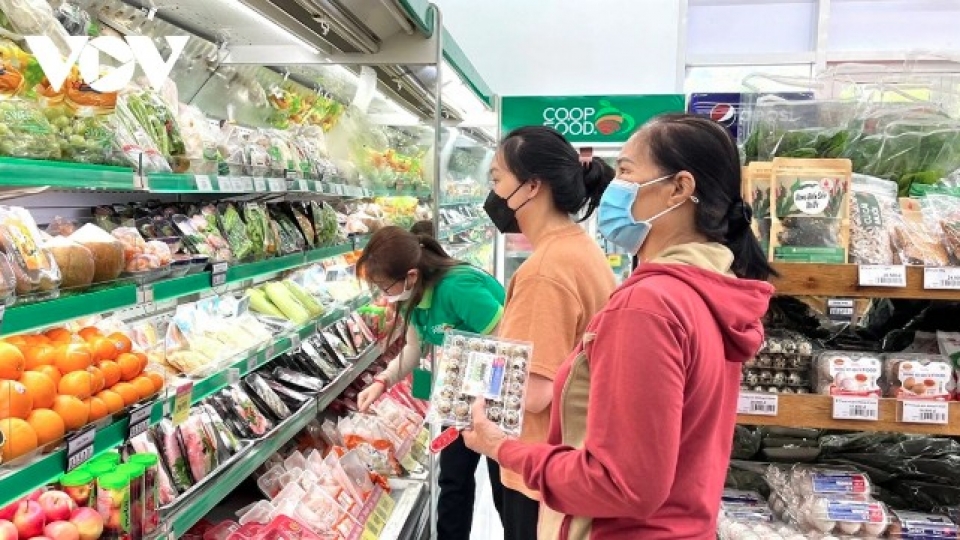National Assembly approves 2% reduction in VAT till year's end
VOV.VN - With 452 out of 453 votes in favor, the National Assembly approved a resolution to reduce the Value-Added Tax (VAT) rate by 2% till the end of the year, at its ongoing session in Hanoi on June 17.

According to the newly approved resolution, the VAT rate will be reduced to 8% for specific groups of goods and services currently subject to the 10% VAT rate. The commodities and services include fuel and petroleum products, information technology services, chemical and prefabricated metal products, and coke and coal.
However, the VAT reduction does not apply to certain goods and services such as telecommunications; financial and banking activities, securities, insurance; real estate business; metal products; mineral products (except coal); and goods and services subject to special consumption tax (except petrol)
In a report presented at the National Assembly before the resolution was approved, Finance Minister Nguyen Van Thang stated that under the government's current proposal, the reduction in state budget revenue is estimated at about VND122 trillion over the last six months of 2025 and the full year of 2026. If VAT were reduced across all items currently subject to the 10% rate, the revenue shortfall would increase to around VND167 trillion.
Despite concerns that further tax cuts may affect public spending, Thang emphasised that VAT reduction helps stimulate production and boost business activity, which in turn could increase revenue from other taxes through the broader economic impact of this policy.
To compensate for revenue shortfalls, he said, the government will strengthen tax collection and budget revenue management, accelerate digital transformation and administrative reforms in tax administration, and focus on key sectors such as land-related revenues, real estate transfers, e-commerce, and digital platform-based business.
The Finance Minister also underlined the government’s commitment to enforcing tight fiscal discipline, promoting expenditure savings, and using reserves and lawful resources to respond to emergencies such as natural disasters and pandemics. The government aims to increase 2025 state budget revenue by around 10% compared to estimated 2024 performance.




